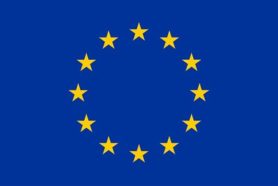Blogpost
AQUACOSM summer school 2019
Freshwater mesocosms as tools for gauging ecological consequences of climatic and chemical change
Between June the 30th and July the 13th Francesco Polazzo (ESR8) participated in the summer school funded by AQUACOSM, which took place at Silwood park (Imperial College, London). Using the campus’ mesocoms facility, equipped with 96 freshwater pond mesocosms, sixteen lucky participants from all over the world were introduced to some of the largest field experiments currently underway studying climate change and chemical pollution.
This summer school focused on how mesocosms can be used as ideal tools to address the huge knowledge gaps in our understanding of multiple-stressors interactions. The participants received training in state-of-the-art techniques in statistical analysis, experimental design, field sampling techniques and the associated theoretical underpinning, as well as a more practical focus on the logistics of setting up and running the necessary infrastructure for such experiments.
The summer school is part of the European Commission funded project AQUACOSM: Network of Leading European AQUAtic MesoCOSM Facilities Connecting Mountains to Oceans from the Arctic to the Mediterranean, which also provides transnational access opportunities to mesocosm facilities in 19 countries (more about the project).
AQUACOSM summer school offered a wide range of expertise on site who taught the students during the course, as well as eminent world experts as guest lecturers. The teaching was connected to live research, with training provided in core techniques that span multiple organisational levels – from genes to ecosystems – and domains of life – from microbes to vertebrates.
- Mesocosm facility
- Silwood park campus
- Field work
- AQUACOSM summer school participants
- Not only working

 This project received funding
from the EU Horizon 2020 program
under Marie Sklodowska-Curie
grant agreement No 813124
This project received funding
from the EU Horizon 2020 program
under Marie Sklodowska-Curie
grant agreement No 813124



